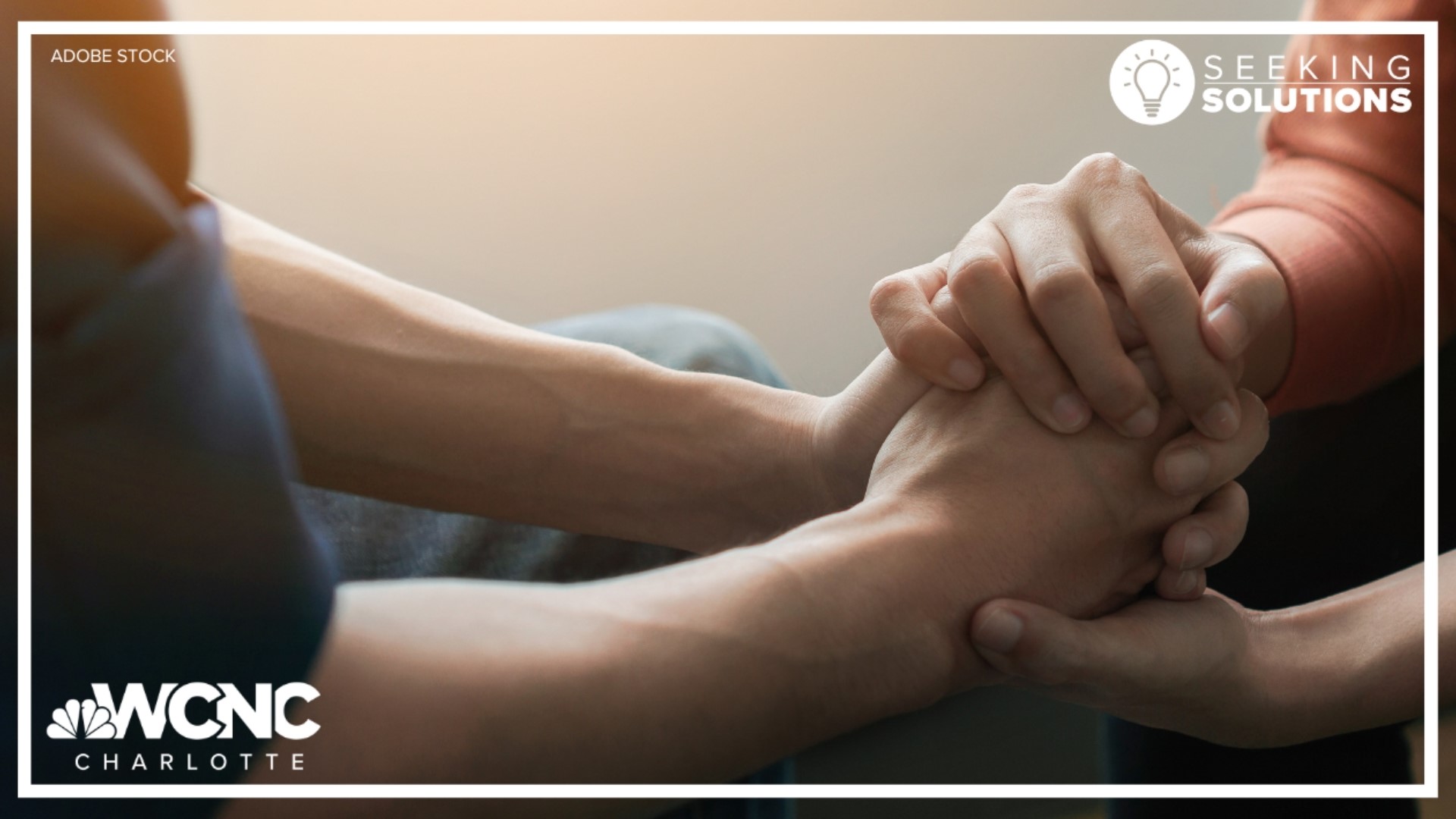MECKLENBURG COUNTY, N.C. — Oct. 10 is World Mental Health Day, and while three years have passed since the start of the pandemic, people of all ages are still dealing with the mental health impacts.
There are limited resources in the community and on an institutional level to provide the proper care.
“Mental health and anxiety in all of our populations are skyrocketing,” said Kelly Crosbie, the director of NCDHHS' Division of Mental Health, Developmental Disabilities, and Substance Use Services.
As leaders continue seeking solutions on how to get people help, the new state budget includes hundreds of millions of dollars for mental health services.
Now, the North Carolina Department of Health and Human Services will receive $835 million for behavioral health services from the North Carolina budget.
State health officials call the funds transformative, helping North Carolinians get the help they need.
“It will absolutely make a difference," Crosbie said. "They will provide a critical safety net for everyone in the state."
The new state budget will include:
- A significant pay increase for mental health care workers
- An expansion of preventive care within primary care or schools
- Efforts to provide alternatives to the emergency room
“Those can be behavior urgent cares or crisis centers,” Crosbie said.
Across the state, emergency rooms have been overwhelmed by mental health patients. The new budget will work to create mobile crisis teams, where they can meet someone where they are located, instead of going to the ER.
"If you’re just feeling emotionally overwhelmed, you just need a calmer environment," Crosbie said. “We need to build a better more therapeutic, less traumatic crisis system.”
Funding will also go toward increasing the number of crisis stabilization beds for children statewide and expanding the statewide bed registry.
The investment in crisis services will help ensure people don’t have to wait in emergency departments for behavioral health care because there is no other place for them to go.
Money will also go towards re-entry, diversion and capacity restoration programs for people involved with the justice system.
The largest of the legislative investments will go toward increasing the Medicaid reimbursement rates for behavioral health services.
In Charlotte, $200,000 is going towards The Relatives, a nonprofit that helps homeless children and youth.
“Half of our kids have had an investigation with our Department of Social Services for abuse or neglect before they even come to us,” Trish Hobson, executive director for The Relatives, said.
Hobson said the kids they serve have a lot of mental health challenges. A big piece of what they do is help the kids address their past trauma, sometimes through counseling.
“They might meet for 45 minutes, they might meet for 15, it's just very flexile and fluid, which is what these young adults need because they often have been and out of a lot of systems and they don’t trust they're going to get the help they need," Hobson said.
Getting the help they need can be critical, as mental health issues continue to impact Charlotte's community.
"That really is the biggest component to helping them be successful, is to help them to address their own emotions and be in control of them, so they can sustain their jobs, their housing, their school, all of it," Hobson said.
If you or someone you know is struggling or in crisis right now, help is available. Call or text the 988 Suicide and Crisis Lifeline at 988 or chat 988lifeline.org. People who speak Spanish can now connect directly to Spanish-speaking crisis counselors by calling 988 and pressing option 2, texting "AYUDA" to 988, or chatting online at 988lineadevida.org or 988Lifeline.org. There are also resources in North Carolina available here and in South Carolina available here.
Contact Lexi Wilson at lwilson@wcnc.com and follow her on Facebook, X and Instagram.

